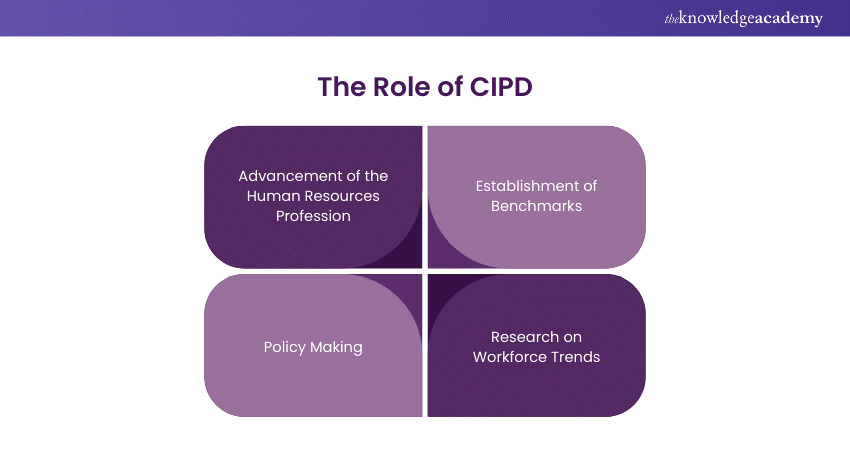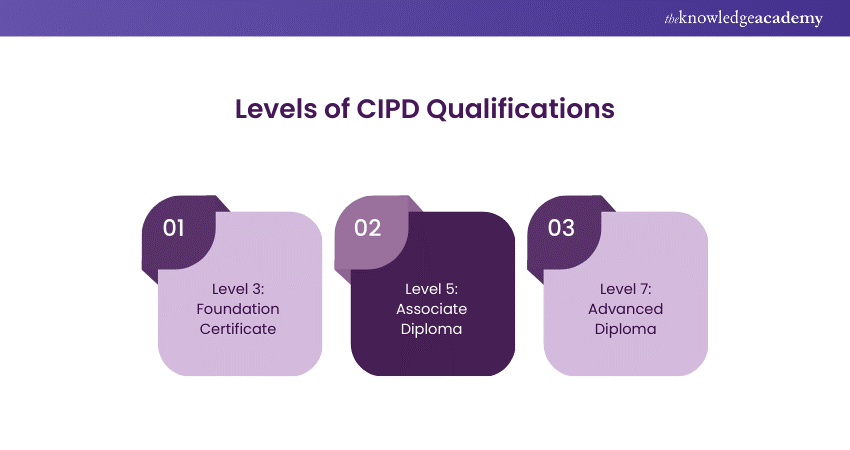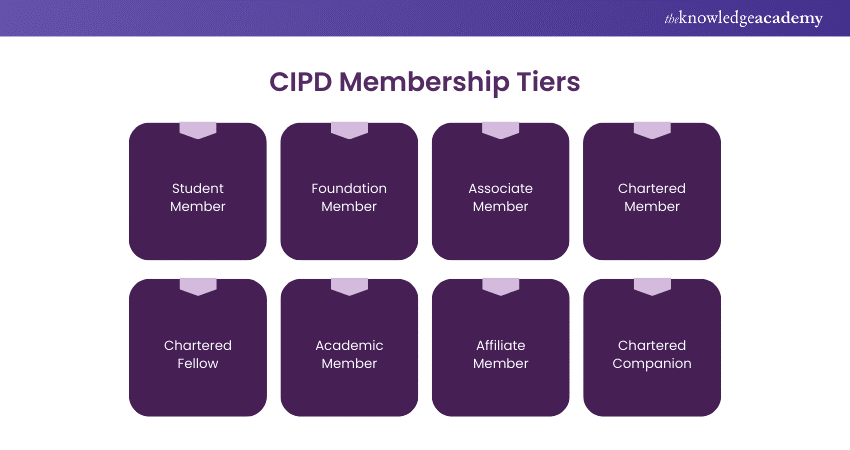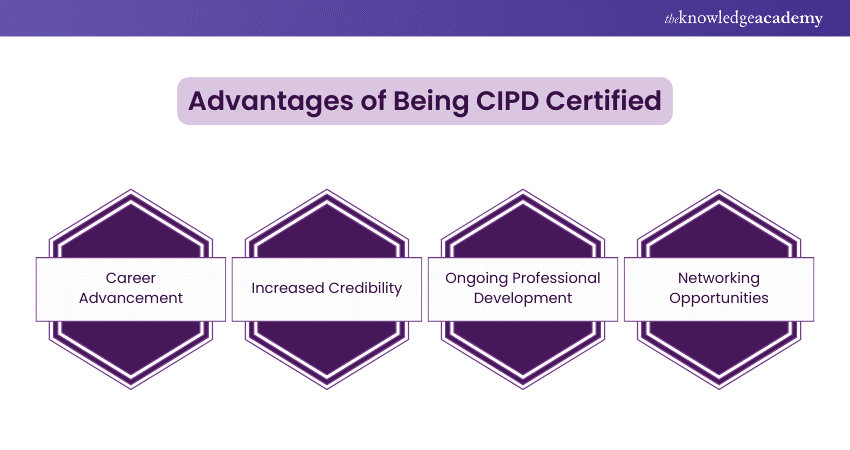We may not have the course you’re looking for. If you enquire or give us a call on 01344203999 and speak to our training experts, we may still be able to help with your training requirements.
We ensure quality, budget-alignment, and timely delivery by our expert instructors.

Chartered Institute of Personnel and Development (CIPD) is more than just a professional body - it’s a gateway to expand your knowledge, refine your skills, and prove your expertise in HR and people management. For decades, professionals across the world have asked What is CIPD and discovered that it offers a range of qualifications designed to enhance their career prospects and credibility in the workplace.
In this blog, we'll explore What is CIPD, the qualifications available, the membership tiers, and the benefits that come with being CIPD certified. Whether you're aiming for your first HR role or positioning yourself for a strategic leadership role, understanding the value of CIPD accreditation could be the first step toward a rewarding and impactful career.
Table of Contents
1) What is CIPD?
2) The Role of CIPD
3) CIPD Qualifications and Membership
4) Levels of CIPD Qualifications
5) CIPD Membership Criteria
6) Advantages of Being CIPD Certified
7) Conclusion
What is CIPD?
CIPD stands for Chartered Institute of Personnel and Development, which is the professional body for HR and people development. Founded in 1913, it’s become a well-respected authority in HR practices, people management, and organisational development.
It has developed professional standards and offers valuable resources to HR practitioners by championing better work and working lives. The CIPD is also instrumental to the development of policies within any workplace, either UK-based or international, by informing research and driving best practices.
Currently, the CIPD has more than 160,000 members worldwide, and its qualifications have greatly impacted the landscape of HR. Indeed, it is a mark of excellence and distinction for anyone who promotes their career in HR or learning and development.
The Role of CIPD
The CIPD contributes towards the progressive promotion of the HR profession through research with governments and organisations at work for setting standard practices, qualifications, and influence in employment policies. This role of CIPD includes:

1) Advancement of the Human Resources Profession: Its main intent is to advance and elevate the HR profession in matters concerning its members' attaining a higher status in ethics and professionalism regarding best practices in human resource management.
2) Establishment of Benchmarks: It establishes benchmark standards for HR practices, including educational qualifications and professional accreditations that transform the person in question to have them perform efficiently within the scope of HR.
3) Research on Workforce Trends: CIPD carries out comprehensive research on key trends and issues, such as employee wellbeing, diversity, and inclusion, keeping the HR professional up-to-date and relevant in this fast-changing landscape.
4) Policy Making: CIPD works with governments and institutions to help shape labour policy and influence employment law. In collaboration with governments and other institutions, CIPD works to ensure that the working environment promotes ethical, inclusive, and sustainable practices.
CIPD Qualifications and Membership
One of the major reasons for pursuing CIPD accreditation is the wide range of qualifications and membership levels available within the organisation. These will support you throughout your career from early careers through to senior leadership roles. CIPD qualifications are highly sought after, and are well-respected by employers worldwide, so very valuable to those pursuing a career in HR and learning development.
The qualification will encompass both practical and theoretical knowledge, enabling you to apply what you learn in real-life scenarios. Writing a CIPD Assignment is an essential part of this process, helping you demonstrate your understanding effectively. Each qualification also grants CIPD membership, enhancing your professional standing and opening doors to CIPD Jobs that align with your expertise.
Levels of CIPD Qualifications
CIPD qualifications at three different levels, each corresponding to the level of experience and career aspiration one may have.

1) Level 3: Foundation Certificate
The Foundation Level qualification is excellent for new employees in an HR role or individuals desiring a career in the field as it provides a solid introduction to needed HR practices. It grants core knowledge and skills necessary to take off on a successful HR career.
a) Ideal for Beginners: The Foundation Level is good for those who are new in an HR role or career starters in a related field.
b) No Prior Experience Required: Suitable for those who have no or minimal HR experience, so giving a fundamental grounding in the basics of HR.
c) General Overview: It is a general introduction to HR and learning development, which encompasses such mainstays as recruitment, employee relations, and performance management.
d) Core Qualifications: The core qualifications for Foundation Level would often be a Level 3 Diploma in HR Practice or a Level 3 Diploma in Learning and Development, both of which provide the foundational skills and knowledge to start a career in HR.
2) Level 5: Associate Diploma
The Associate Level of CIPD qualifications is ideal for HR professionals trying to advance their skills and move into mid-level roles, offering in-depth knowledge and specialisation in key HR areas.
a) Career Advancement: Designed for those with some HR experience, this level helps elevate your skills and advance your career.
b) Equivalent to Undergraduate Level: Intermediate qualifications are comparable to undergraduate degrees but focus on advancing your current HR role or preparing for mid-level HR positions.
c) Core Learning Areas: The Level 5 Certificate or Diploma in HR Management covers advanced topics like employment law, talent management, and reward systems.
d) Specialisation Opportunities: Intermediate qualifications allow for specialisation within HR or learning and development, preparing you for management roles within your organisation.
3) Level 7: Advanced Diploma
Advanced Level qualifications are designed for experienced HR professionals aiming for strategic leadership roles. These qualifications provide in-depth knowledge, equivalent to postgraduate study, and focus on aligning HR with business strategy.
a) Targeted at Experienced HR Professionals: Designed for HR practitioners with significant experience, aiming for strategic leadership roles.
b) Equivalent to Postgraduate Study: These qualifications offer a deep understanding, comparable to postgraduate education, focusing on aligning HR functions with business strategy.
c) Covers Key Strategic Areas: Topics include organisational development, business leadership, and strategic workforce planning, especially within the Level 7 Diploma in HR Management.
d) Opens Doors to Senior Positions: Completing the Advanced Level qualification can lead to high-level roles such as HR Director or Chief People Officer.
e) Enables Strategic HR Leadership: Equips individuals to drive the HR strategy of an organisation, maximising its effectiveness and impact.
CIPD Membership Criteria
When you have successfully completed your CIPD qualification, you may apply to join the CIPD community. This gives you evidence of your desire to go into the profession and demonstrates more credibility in the eyes of an employer. There are lot of added CIPD Menbership Benefits for HR Professionals, such as consulting CIPD research and resources and access to networking opportunities.
CIPD Membership Tiers
CIPD offers different membership tiers in terms of qualifications and experience.

1) Student Member: This is for the students who are currently undertaking their CIPD qualification.
2) Foundation Member: This is for professionals, who holds the Level 3 Foundation Certificate and can apply their HR knowledge to provide effective tactical support.
3) Associate Member: This is for those holding a Level 3 or 5 qualification as a formal, recognised qualified HR practitioner.
4) Chartered Member: Chartered members are experienced practitioners; the holder must have been awarded a Level 7 qualification and work at a strategic level.
5) Chartered Fellow: This is for senior practitioners with a proven significant experience and history of leadership and influence in the field of HR.
6) Academic Member: This is for teachers, lecturers, and researchers in the HR and learning and development fields.
7) Affiliate Member: This is for non-HR and L&D professionals looking to access CIPD resources and events.
8) Chartered Companion: This is the highest level of recognition, awarded by the CIPD Board to exceptional HR professionals who have made a significant impact on the profession and the workplace.
Advantages of Being CIPD Certified
The following are some benefits one gets with CIPD accreditation:

1) Career Advancement: CIPD qualification opens doors to a multitude of roles in human resources, including entry levels and executive positions. Employers are increasingly looking to bridge gaps in HR and learning development by hiring CIPD-accredited professionals. When comparing CIPD vs SHRM, both offer valuable certifications, but CIPD is particularly recognised for its focus on HR development and organisational learning.
2) Increased Credibility: Having acquired a CIPD, you are regarded as one that holds the highest ethical and professional standards, making you more creditworthy to your employers and to colleagues.
3) Ongoing Professional Development: Through membership with the CIPD, you will be able to have tools, events, and lifelong learning that will refresh knowledge current with the latest developments and trends in HR.
4) Networking Opportunities: Membership by CIPD connects you to a network of HR professionals; it helps to acquire some very valuable learning for career progression.
Conclusion
CIPD qualification serves as an excellence mark in someone working in the field of HR or developing it. CIPD accreditation not only enhances your knowledge and skills but also positions you as a credible and trusted HR professional. By investing in CIPD qualifications, you're not just learning about HR; you're gaining the tools to influence change, shape organisational culture, and drive business success. Understanding What is CIPD is the gateway to become a leader who can inspire and empower others in the workplace.
Frequently Asked Questions
How Long Does It Take to Complete a CIPD Qualification?

The time to complete a CIPD qualification differs depending on the level and your study pace. Typically, Foundation Level takes 6-12 months, Intermediate Level around 12-18 months, and Advanced Level 18-24 months. Flexible study options allow you to fit learning around your schedule.
Are the Courses Available Online or In-person?

CIPD courses are available both online and in-person, providing flexibility to suit different learning preferences. Many providers offer blended options, too, combining online modules with occasional in-person workshops so you can choose the format that best accommodates your lifestyle and learning style.
What are the Other Resources and Offers Provided by The Knowledge Academy?

The Knowledge Academy takes global learning to new heights, offering over 3,000 online courses across 490+ locations in 190+ countries. This expansive reach ensures accessibility and convenience for learners worldwide.
Alongside our diverse Online Course Catalogue, encompassing 19 major categories, we go the extra mile by providing a plethora of free educational Online Resources like News updates, Blogs, videos, webinars, and interview questions. Tailoring learning experiences further, professionals can maximise value with customisable Course Bundles of TKA.
What is The Knowledge Pass, and How Does it Work?

The Knowledge Academy’s Knowledge Pass, a prepaid voucher, adds another layer of flexibility, allowing course bookings over a 12-month period. Join us on a journey where education knows no bounds.






 Top Rated Course
Top Rated Course



 If you wish to make any changes to your course, please
If you wish to make any changes to your course, please


